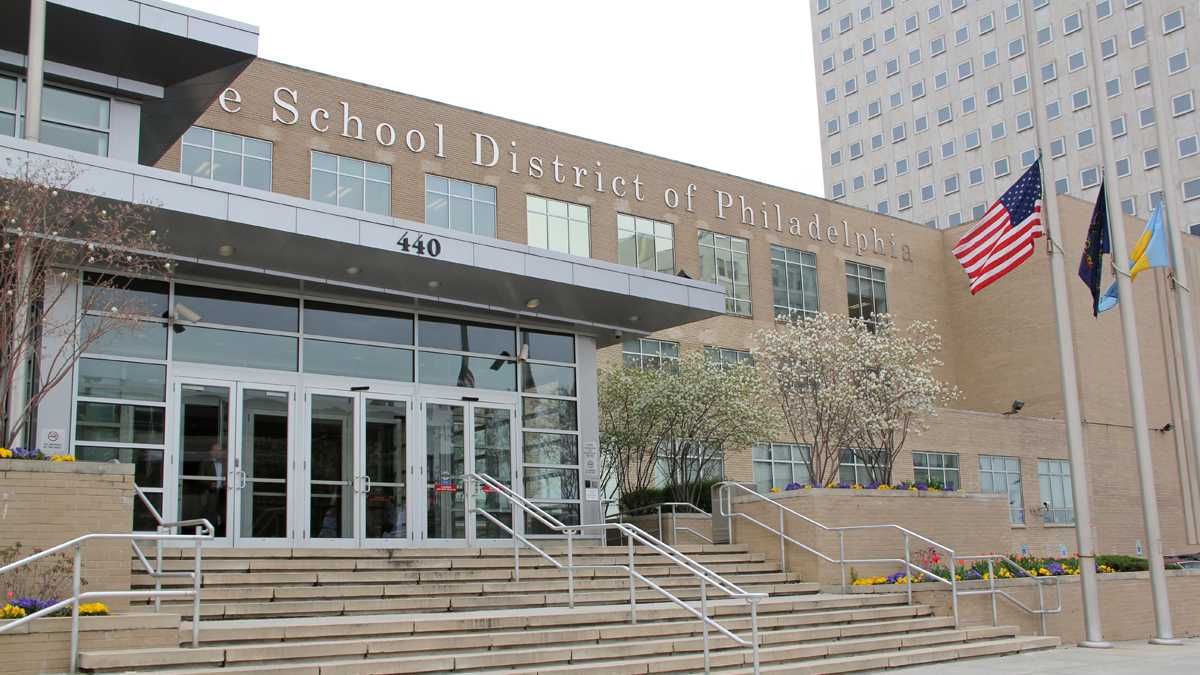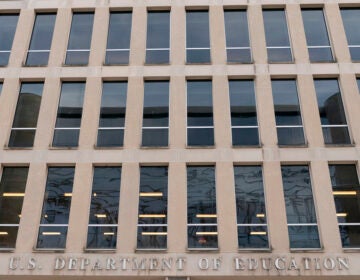Labor milestone for Philly schools as administrators approve new contract

Philadelphia School District headquarters at Broad and Spring Garden streets (Emma Lee/NewsWorks Photo, file)
Philly’s public school principals ratified a new contract Thursday, nudging their school district ever closer to a long-awaited moment of labor stability.
Members of the Commonwealth Association of School Administrators Teamsters Local 502 (CASA) — which represents Philly principals, assistant principals, and a hodgepodge of other administrators — approved the pact by an overwhelming, 91 percent majority.
The new deal is slated to run through August 2021.
If the city’s School Reform Commission okays the new CASA deal at its next meeting, nearly every unionized employee of Philadelphia’s public school system will have a labor contract for the first time since the summer of 2013. The union representing school police officers is still without a contract, although it is one of the system’s smallest bargaining units.
With the school district projecting a small budget surplus this year, Philadelphia’s public schools could be on the verge of a rare combination: one full school year of relative labor peace and fiscal solvency.
The solvency part might not last long, but for now it’s a milestone moment in the system’s long climb from a series of jarring financial crises in the early 2010’s.
“Four years ago, during our deep financial crisis, CASA members made the decision to approve cutbacks for the benefit of our schools and students,” said district superintendent William Hite. “Today I am proud to announce a ratified agreement with our principals, assistant principals, and other school administrators that acknowledges the tremendous contributions they make.”
It’s also a milestone moment for CASA, whose members rejected a deal last June before voting out its leadership and electing new president Robin Cooper.
“I think it brings stability to the city of Philadelphia because everyone is working under an affordable contract,” Cooper said.
Neither the district nor CASA put a dollar amount on the new agreement, but in a joint press release the parties divulged some details.
Principals will become 12-month employees again in 2018, something they conceded in their last contract. The new deal also holds health care contributions steady, while carving out a slightly slower healthcare contribution for some of the union’s lower-paid employees
Across the board, CASA members will receive two percent raises over the life of the new contract, Cooper said, in addition to some immediate bonuses. She also emphasized that the new deal gave principals greater say in termination proceedings and other disciplinary actions. The rejected deal provided less protection for employees, Cooper said.
In 2014, with the district facing a large budget hole, CASA members agreed to $20 million in givebacks. That deal required administrators to make health care contributions for the first time and reduced their work year from 12 months to 10.
Last year, CASA leadership and district brass agreed to a new deal that would have delivered three percent bonuses, made principals 11-month employees and held health care contributions steady. Members decisively rejected that proposal, according to then-president Robert McGrogan, although he said the decision had little to do with money. Rather, McGrogan claimed, principals were voting “no” to register disappointment with the overall climate in district schools and the demands of central office staff.
On August 31, CASA’s old contract expired, although administrators continued to operate under the terms of their old agreement.
Last summer, the union representing Philadelphia’s classroom teachers was locked in the fourth year of a contract dispute with district leadership. That dispute ended in June when the School Reform Commission and Philadelphia Federation of Teachers both approved a new deal.
Since then, three of five unions representing school district employees had contracts — with CASA and the school police officers’ unions as the exceptions.
The question looming for city leaders, state lawakers, district officials, and district employees is how Philly will pay for this latest round of contracts.
According to projections, the district will have a negative fund balance starting in fiscal year 2019. By 2022 the deficit will be a staggering $979 million.
Correction: An earlier version of this story said all unionized employees would have a contract if the SRC ratified CASA’s new deal. That is incorrect. The union representing school police officers does not have a contract.
WHYY is your source for fact-based, in-depth journalism and information. As a nonprofit organization, we rely on financial support from readers like you. Please give today.





